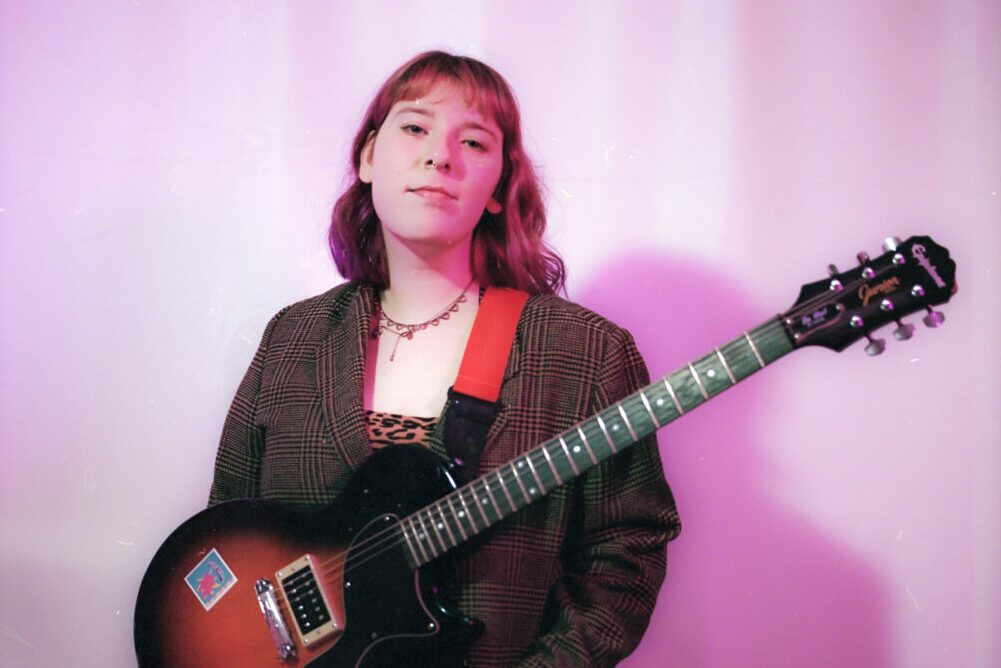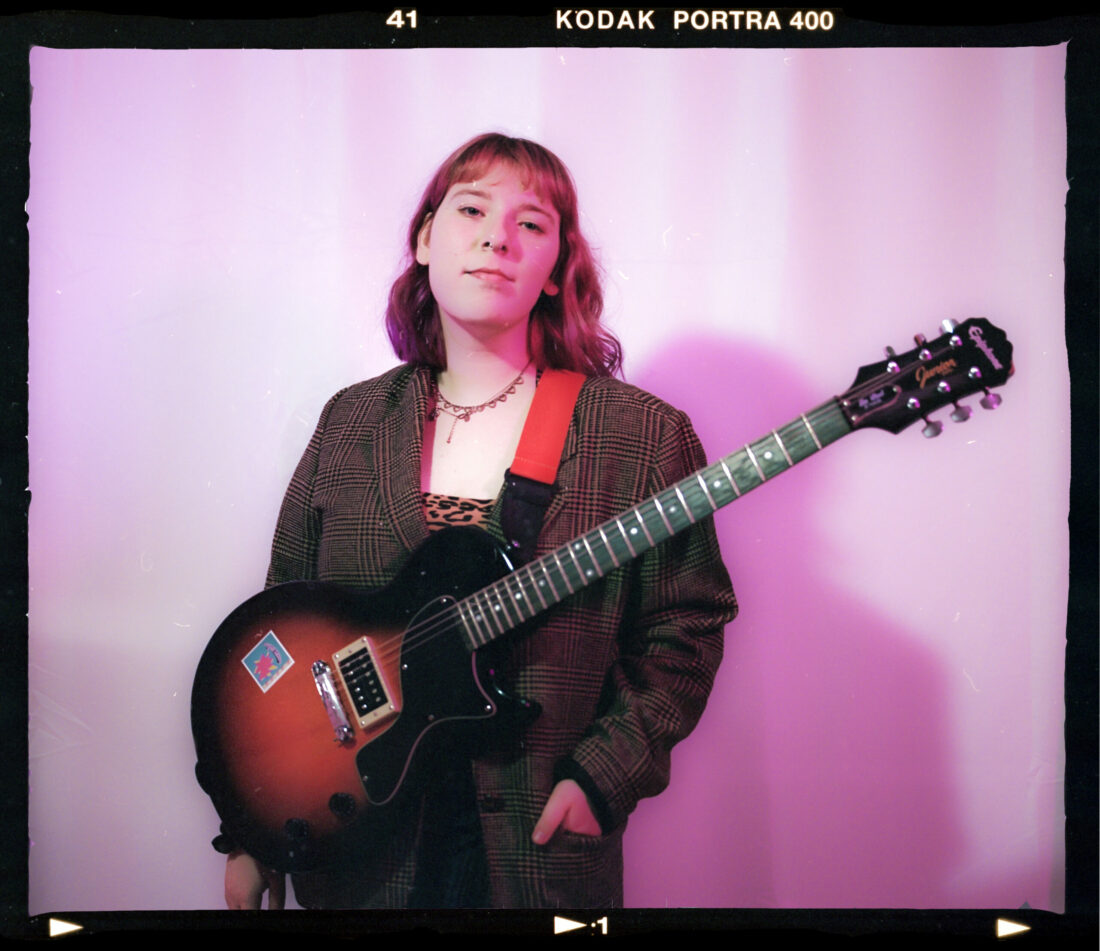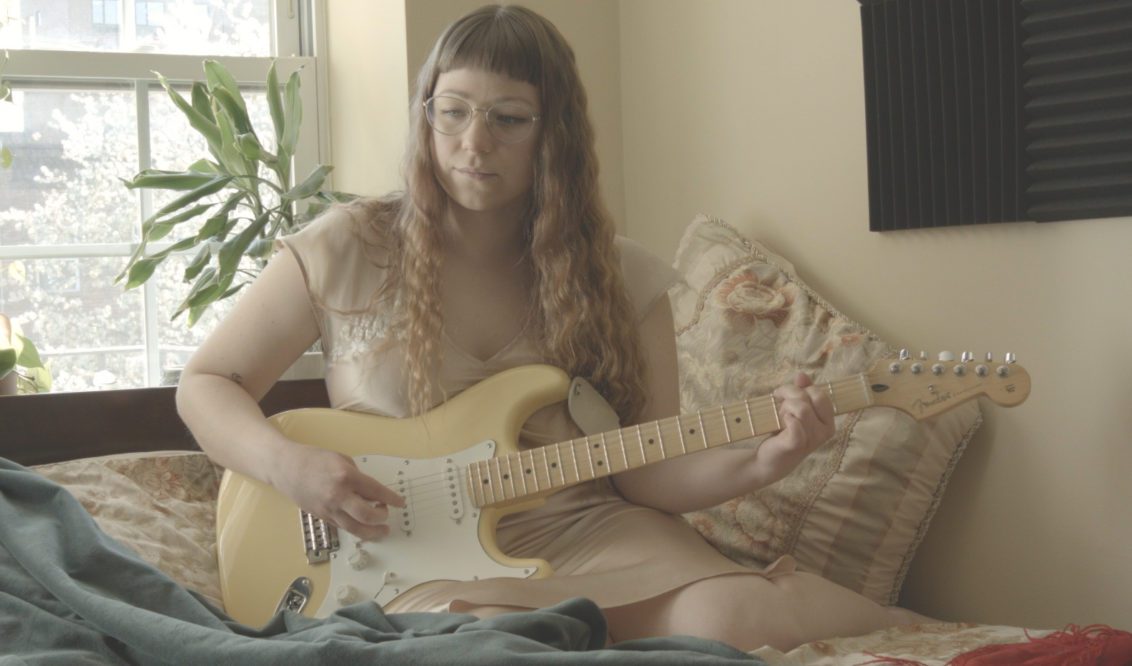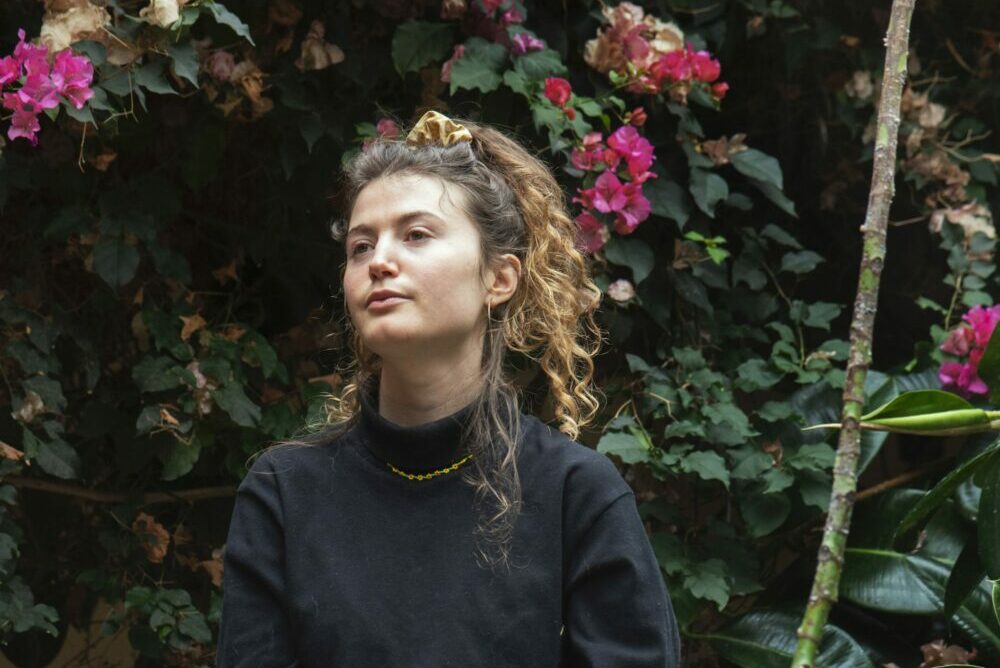
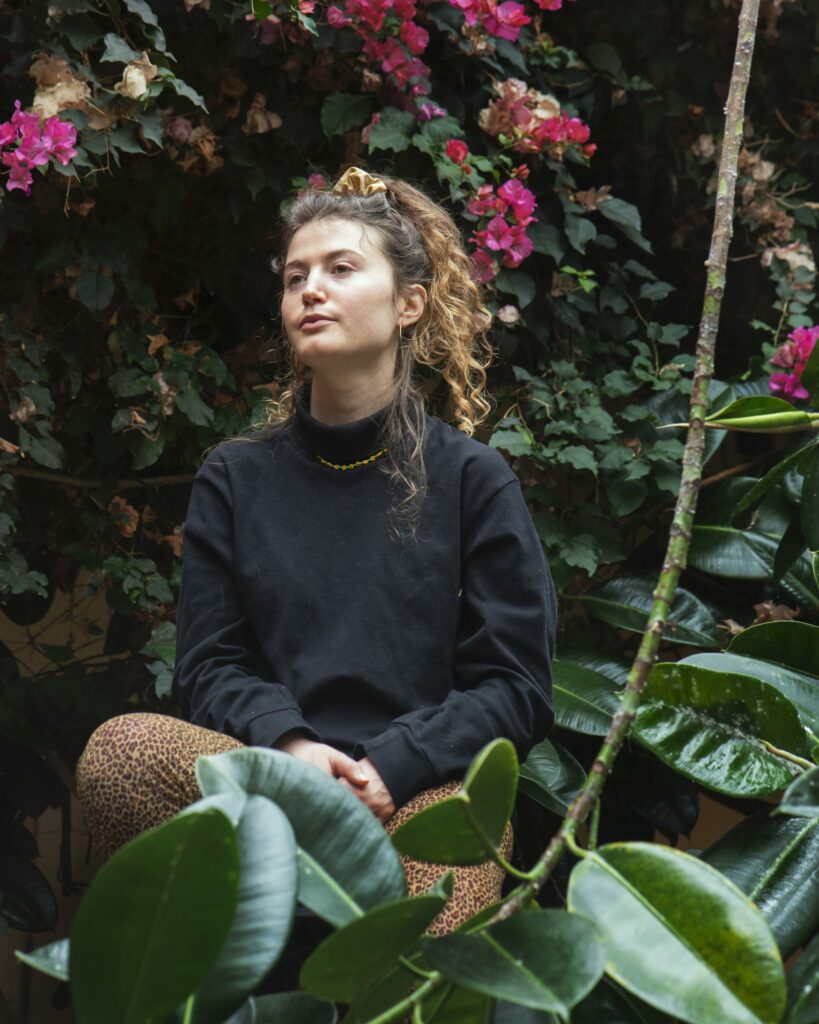
How do we mourn the living? Maya Bon of Babehoven unpacks this strange, but not uncommon, phenomenon on her new EP, Nastavi, Calliope, out today. The record strings together Bon’s meandering streams of consciousness, connecting moments of apathy to deep swells of emotion. She navigates deeply fractured relationships and loss of loved ones while searching for a connection to Croatia, her birthplace (“Nastavi” means “keep going” in Croatian and “Calliope” is the name of her eccentric childhood dog who passed away this year).
Bon says these two words served as a compass for her this past year as she waded through pools of grief, uncertainty and loss. “[Nastavi] just really stuck with me because that felt so true for me this year,” says Bon. “I really just wanted to keep going and feel okay in myself. Recording became my avenue to do that.”
Bon explains that her reconnection to Croatia has been a way to form ties outside of a familial context. Her family left the country when she was five years old and her father stayed behind. She returned four years ago, at age 21, and saw her father for the first time in sixteen years. With this emotional reunion came a chance to connect not only to an estranged family member, but to her estranged culture. “My family is very painful for me,” says Bon, “so it feels very special to contain something that’s not family but is somewhere that I’m from.” This yearning to connect yielded Croatian classes and a seat in a Balkan choir, activities that have helped Bon root deeper into her identity.
Though Bon doesn’t overtly say in our conversation who she’s grieving, album opener “Bad Week” outlines a heartbreaking fallout. “You were both a father and a brother to me/You were my whole family,” Bon sings well into the song, illustrating the crushing blow of losing someone extremely close to you. Her pleading vocals narrate the cyclical nature of grief and the way that it feels like it will never end; “It’s hard to talk about it/Been a bad week/It’s been a bad week for a long time.” Bon says that she uses her songwriting as a vessel to communicate about things that feel too intimate to share in conversation.
“It’s weird that it comes out in my music because, at least in the beginning, I never talked about these things with people,” Bon muses. “Family, for me, always felt very private, because in a way, it was forced for me to be like that. There was always so much shame and layers of grief.”
Instead of overtly talking about loss and trauma, these feelings come out in fragmented lyrics, scattering puzzle pieces for others – and herself – to put together. This is especially palpable in “Crossword,” a vivid description of Bon’s internal monologue. “Angus carried my bike up the stairs as I stood at the bottom/And I’m not sure if I just stared/Or if I thanked him/There’s a high chance that I’m feeling broken hearted,” she sings in the opening lines of the song, poignantly depicting a dissociative episode. Even her lyrical phrases run into each other like waves in a storm, mirroring her jumbled thoughts.
Between these moments of grieving and reflection, Bon leaves space for appreciating the loved ones around her. In “Alt. Lena,” she pays homage to a close friend and captures the familiarity and comfort we can find in our chosen family. She says that this is actually the only song she’s written that wasn’t from a stream of consciousness, but constructed from a laundry list of things her friend, Lena, likes. Sun-drenched guitars and Bon’s relaxed vocals paint a picture of a person who feels like being on vacation. Lena’s aura is so strong it reaches through the speakers and to the listener, generating memories of those people in our lives who seem too magical to be true.
Although Nastavi, Calliope doesn’t exactly offer a cure to grief, it offers a hand to hold through whatever loss you may be experiencing, a reminder that you’re not alone and that there are beautiful moments sprinkled in with the sad ones. And that sometimes writing a song about making out with your best friend is the form of healing you need.
Follow Babehoven on Instagram and Facebook for ongoing updates.

